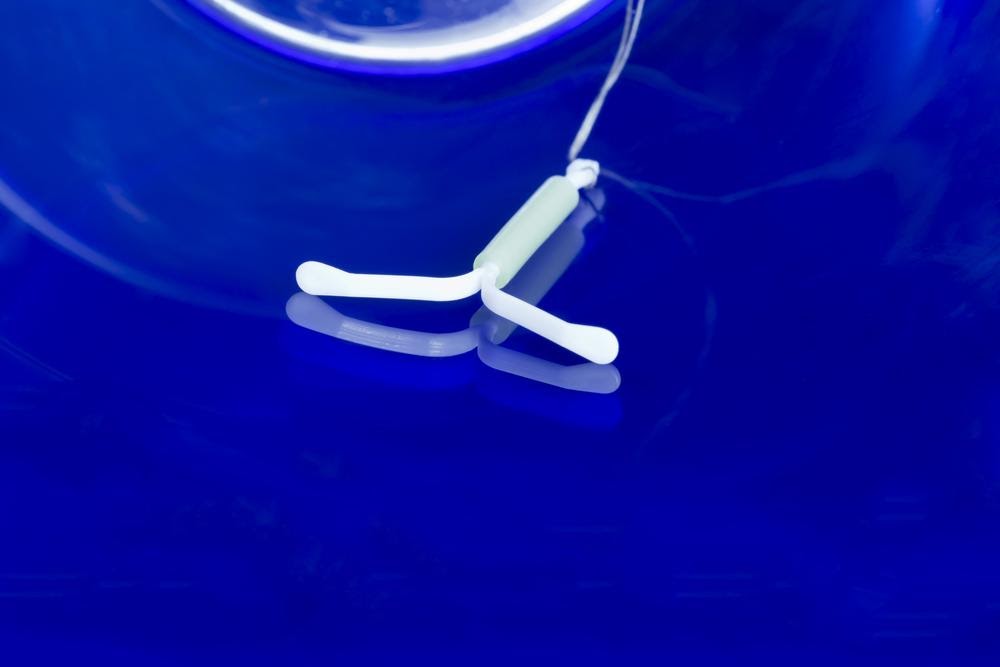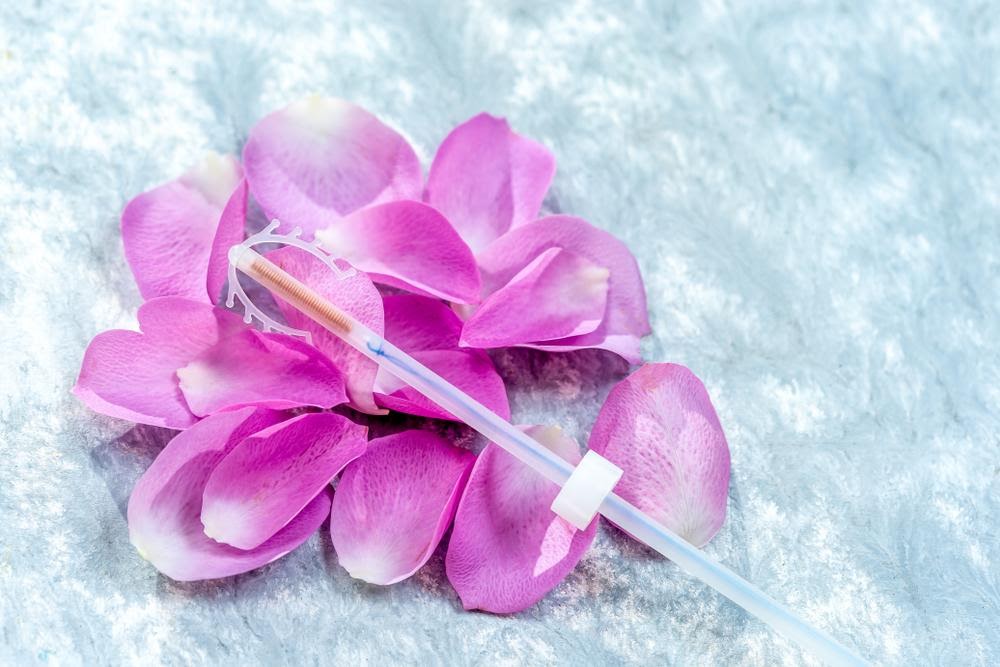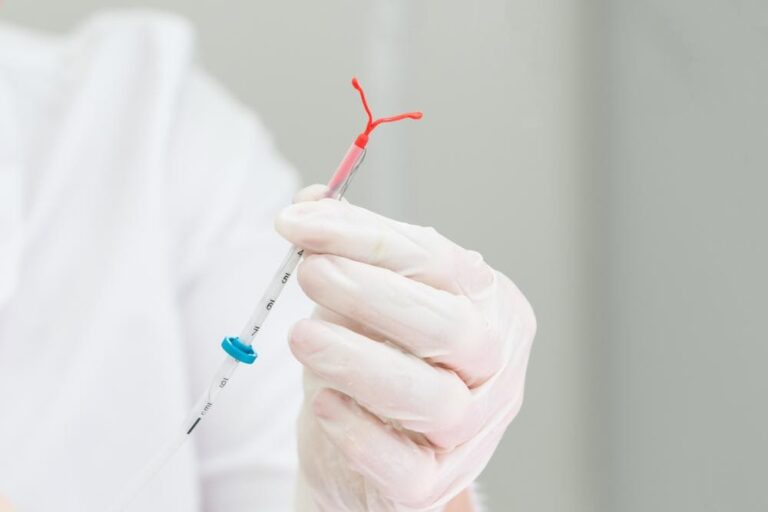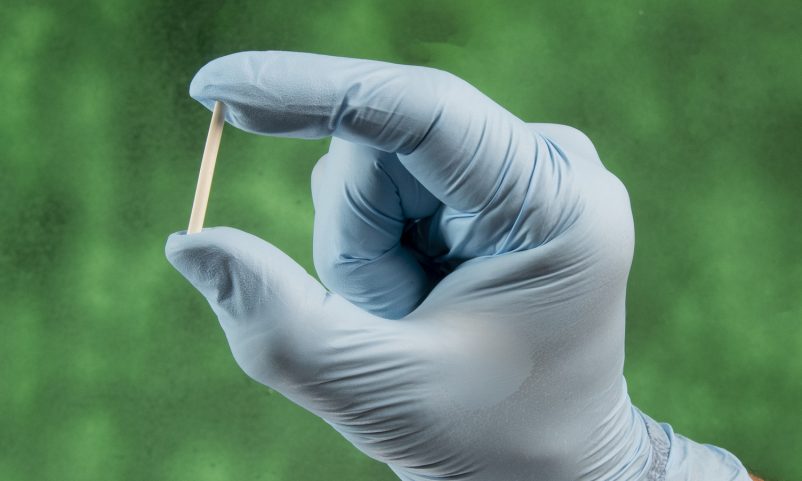An intrauterine device, otherwise known as IUD, is a popular type of reversible contraception method amongst women in Singapore and other parts of the world. It is especially useful for women who are not looking to conceive over the next couple of years. But are they suitable for you?
What Is An IUD?

As the name suggests, an IUD is a T-shaped device that is inserted by a female doctor into the uterus to prevent any pregnancy.
Most IUDs can last anywhere between 3 – 10 years (women’s clinics in Singapore only offer IUDs that last for 5 years) and can be removed when they expire or when a woman decides that she is ready to have children. They are 99% effective.
How Does an IUD Work?

This plastic T-shaped device sits in the uterus to create an unfavourable environment for the sperm from meeting the egg to prevent fertilisation even during unprotected sexual intercourse.
Women can choose between 2 types of IUDs – hormonal and non-hormonal – which work slightly differently to prevent pregnancy.
Hormonal IUDs
Hormonal IUDs like Mirena release a type of progestin hormone called levonorgestrel (LNG) which creates a hostile environment for the sperm by thickening the cervical mucus to prevent the sperm from surviving and from reaching the egg. It works by releasing small amounts of hormone regularly so that the womb lining remains thin, making it unsuitable for implantation.
There are a few types of hormonal IUDs available overseas such as Kyleena, Liletta, Skyla and Jaydess. But women’s clinics in Singapore only provide Mirena which can last for 5 years from the time of insertion.
On top of providing birth control, the hormonal IUD can also be used to treat conditions such as heavy and irregular periods and painful periods. Additional benefits which make it popular amongst women also include the convenience of having no periods or very light periods for the duration when the Mirena is being used. In most women, bleeding becomes very light or stops usually about 3-6 months after the Mirena is put in.
More importantly, having the Mirena can also help in preventing womb cancer by ensuring and maintaining a thin womb lining.
Non-Hormonal
The non hormonal IUD is also known as the Copper IUD. The copper IUD does not contain any hormones unlike the hormonal IUD.
The copper IUD’s primary function is to provide contraception. The IUD is lined with copper which is considered toxic to sperms. Additionally, the presence of the IUD in the uterus will prevent fertilization and hence prevent a pregnancy.
The copper IUD can also be used as a method of emergency contraception to prevent an unwanted pregnancy up to 5 days after unprotected sexual intercourse. This is an added advantage of the copper IUD as this can be a more effective form of emergency contraception compared to the emergency pill.
How Do I Choose Between Hormonal or Non-hormonal IUD?
While having so much information can be confusing, choosing the most suitable option will depend on personal preference and a discussion with your doctor.
It is recommended to consult your women’s health doctor regarding your options and to weigh the pros and cons of each type of IUD before deciding which type is most suitable for you.
In general, the hormonal IUD such as the Mirena tends to be more popular amongst women due to the multiple added benefits that it has on top of contraception.
Where You Can Get an IUD

Unlike other contraception methods like birth control pills that you could buy at your regular general practitioner clinic in Singapore, an IUD can only be inserted by a specially trained doctor at a women’s clinic.
Most women’s clinics should have both hormonal and non-hormonal IUDs available.
Should You Get an IUD?
While IUDs are a very effective and useful method of birth control, it may not be suitable for everyone.
When deciding whether or not to get an IUD it is important for you to weigh the pros & cons before committing to it.
Advantages Of Having An IUD

Unlike other methods like pills that need to be taken daily to prevent pregnancy, IUDs can last for years.
Both types – hormonal and non-hormonal – only need to be replaced every 5 years by a doctor.
If you decide that you want to have children, you could have the IUD taken out before they expire.
1. Can be Used for Emergency Contraception
If you are worried about getting pregnant after having unprotected sexual intercourse, the good news is that the non-hormonal copper IUDs can be used as a form of Emergency Contraception. The copper IUD can mitigate the chances of pregnancy if it is inserted by a doctor within 120 hours after unprotected sexual intercourse. This can then be used as long term contraception after.
2. Reversible Long Term Birth Control
Both the hormonal and non hormonal IUD can be easily inserted and removed at request. They will not affect a woman’s long term fertility A woman can try to conceive immediately after the IUD is removed.
This makes it a useful method for family planning, especially if a woman is not intending to conceive in the next few years. The IUD also provides effective and convenient birth control without having to worry about missed medication.
3. Effective Birth Control
Both the hormonal and non- hormonal copper IUD are one of the most effective methods of birth control. Compared to other birth control methods such as pills or injections (which are around 95% to 98% effective), IUDs are at least 99% effective in preventing any unwanted pregnancy, which provides any woman a great peace of mind.
4. Convenience
Once the IUD is successfully inserted, a woman no longer has to worry about it. The IUD provides constant birth control as long as it stays inside. This makes it an extremely convenient method compared to pills or injections whereby a patient has to diligently remember the next dose. Missed pills or injections can result in the loss of birth control and lead to an unplanned pregnancy.
5. Other Benefits
Hormonal IUDs also address various women’s issues like painful periods and heavy flows. The Mirena Hormonal IUD is one of the recommended methods to effectively treat women who experience heavy, irregular periods. They can help to reduce heavy periods and also relieve painful menstrual cramps.
Additionally, having the hormonal IUD helps to maintain a thin womb lining which helps to prevent womb cancer.
6. Cost Effectiveness
While the initial upfront cost may be greater, bear in mind that this cost will be divided over the duration of 5 years! This makes it a cost effective option compared to some of the other methods over the same period of time.
Disadvantages Of Having An IUD

1. Do Not Prevent the Spread of STDs
While IUDs are effective in preventing pregnancy, they cannot prevent the spread of STDs. They have to be used with condoms to avoid the risk of getting an STD
2. May Cause Heavier Periods
While hormonal IUDs are effective in treating heavy periods and easing menstrual pains, non-hormonal copper IUDs may cause periods to become heavier. It could also induce more painful menstrual cramps.
3.Discomfort
One might also feel slightly uncomfortable during insertion and the first few days after the IUD has been put in place. However, this discomfort usually resolves after the first few days and most people go about their normal lives and activities.
4. Slight Risks
As the IUD insertion involves undergoing a procedure, there may be some associated risks. These include infection and pain. Less common risks may involve the displacement of the IUD after some time as it can move. An extremely rare risk may also include the risk of uterine perforation.
Concluding Remarks
In general, IUDs are very safe. But they may not be for everyone. If you are deciding on getting an IUD, do consult your women’s health doctor to find out more about whether this contraception method is suitable for you.








